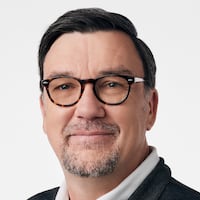It is an important job for several reasons: most academy players start as local residents who support the local club, so playing for academy provides extra motivation. Second, it’s typically cheaper to develop first-team players rather than to try to buy them through the transfer market. There are many more reasons.
“…the measure of our success is not by how many championships we win, it’s about how many players we can develop and take through the pathway,” Money said.
Money, 60, will bring a lifetime of experience as a player, manager and academy director, including when he built an academy at Coventry in his native England. He checked all the boxes that President Darren Eales and technical director Carlos Bocanegra wanted from the director:
- Experience running an academy;
- An ability to coach coaches;
- An acumen at bringing players through each level;
- Business acumen to run the academy;
Money spent some time last week answering a lot of questions about the academy, which is under construction in Marietta. This is the first of a two-part series. The second part will run Thursday on ajc.com.
Questions and answers have in some cases been edited for clarity.
Q: Why this job?
A: You get different stages of your career, and I’ve been fortunate to be able to do some of the glory stuff, and I’ve come to a time in my life where I wanted to come to a good organization and give some good people the benefit of my experience.
The opportunity is a big one, the challenge is a big one and it’s something I’m really looking forward to.
The major thing is I’m at the stage of my career where I can come and bring the benefit of the knowledge that I have.
Q: I know you have been the director of a lot of academies, have you ever built an academy from scratch?
A: I have. There was a change in the early ‘90s in the U.K. from what they used to call a center of excellence to an academy. I was academy director at Coventry for the first four years of that program. It was raising the standard, raising the bar in terms of coaches, players, facilities.
It’s not too dissimilar to what we are doing here. It was something to build on and an important time for that club.
Q: What are some of the best practices you learned from that you can apply 20 years later to Atlanta United?
A: We are going to be a little bit different to what most people have experienced within the youth organizations in Atlanta right now. What I mean by that is our curriculum will be based on development and teaching. The environment that we want to create and will create is one that’s safe, and one that’s a learning environment for the players. What I mean by that is we will encourage the young players to take risks. We want them to understand that making mistakes is OK and bring a growth mindset to the whole procedure, learn from their experience and give them some ownership into what they are doing.
Part of the learning is their own discovery. We want to be about development, we want to be about the way we play, the style of play and about winning after that. The reason I can say that is the measure of our success is not by how many championships we win, it’s about how many players we can develop and take through the pathway. It’s a little bit of different mindset to what most people have experienced.
We want to help people to buy into that mindset right across the youth organizations within the city. That’s going to be a major part of my role going forward in the next few years, to bring the city together as one so that we are all developing players, all developing coaches. We want the base of good young players is bigger, therefore the talent base for our club is greater as well.
Q: What is the timeline for hiring the academy coaches?
A: Probably between June and July.
Q: Are y’all going to adopt a Dutch model, where every team plays the same formation so that the players have a comfort level as they move up, or will it be based upon the talent you have?
A: I think it’s a two-fold thing. Initially, it will be based upon the talent we have. In the medium to long term, it will be about developing a philosophy and a way of playing. I think Carlos and I are very much of the same mindset in that it’s not based around a system, it’s based around the way you play.
Building from the back, playing through the thirds, being penetrative in what you do. I think it’s important for young players to experience different types of formations because you never know what the first-team coach is going to bring.
It’s more about the way we play, rather than the system.
Q: What did you learn from your time in Sweden and Australia, and how does it compare to what you’ve experience with soccer in the U.S.?
A: MLS is comparable with the top league in Sweden, and the A-League in Australia. They have a very similar standard. All of the leagues are growing. Who knows where it’s going to be in the next 5-10 years?
From a personal point of view, I think the experience of working abroad is crucial. Coming to Atlanta, people have different mentalities. Every individual is different. I think the ability to treat them as individuals is crucial.
That’s the main thing I learned from working abroad.
About the Author



